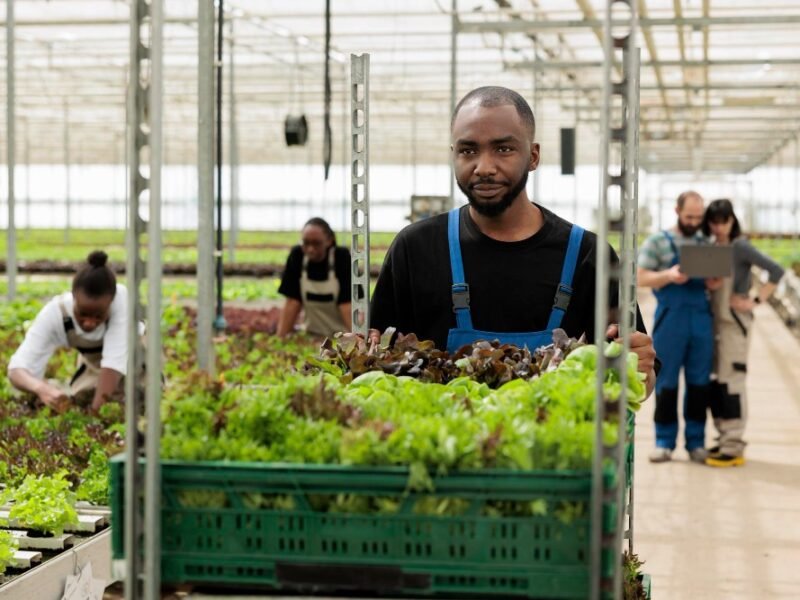Germany’s agricultural sector has become a hub for foreign workers seeking rewarding employment opportunities with visa sponsorship. In 2024, the demand for farm laborers, technicians, and skilled professionals in Germany’s rural areas is rising, and farms are increasingly offering visa sponsorship to attract talent from abroad.
What is the Appeal of Employment in Germany’s Agricultural Sector?
Germany’s agricultural sector plays a crucial role in the European food supply chain, making it an important industry with consistent demand for labor. Whether it’s seasonal work during harvest time or permanent positions managing farms, Germany offers a wide variety of agricultural jobs.
Key reasons to work in Germany’s agricultural sector include:
- Job Availability: High demand for workers, particularly during planting and harvesting seasons.
- Cultural Experience: A chance to immerse yourself in German culture and rural life.
- Opportunities for Growth: Openings for both skilled and unskilled workers with the potential to move up to managerial roles or specialized positions.
- Advanced Agricultural Technology: Germany is known for modern, mechanized farming techniques, making it a great place to learn new skills and work with cutting-edge equipment.
Types of Agricultural Farm Jobs Available for Foreigners in Germany
There are various job roles in Germany’s agricultural industry, catering to different skills and experience levels. Here are some of the most common positions available for foreigners:
- Farm Worker: Involves manual labor, planting crops, and maintaining farm operations.
- Grower: Focuses on the cultivation and care of specific crops.
- Agricultural Gear Technician: Maintains and repairs farm machinery.
- Grain Lift Operator: Manages grain handling and processing during harvest seasons.
- Purchasing Agent: Oversees the purchase of farm supplies and equipment.
- Crop Manager: Ensures the health and productivity of crops, often involving management duties.
- Environmental Engineer: Develop sustainable farming practices and solutions to environmental challenges.
- Research Scientist: Studies agricultural methods and innovations to improve yields and efficiency.
Each of these roles has specific responsibilities and may require varying levels of experience, but many entry-level positions are available for those new to the field.
Eligibility and Requirements for Agricultural Jobs in Germany
Before applying for an agricultural job in Germany, it’s essential to understand the eligibility criteria. Here’s what you’ll typically need:
- Experience: While some jobs require previous experience, entry-level roles often don’t.
- Physical Fitness: Farm work is physically demanding, requiring stamina and the ability to handle long hours and heavy lifting.
- Language Skills: Basic German is helpful but not always required, as many farms employ English-speaking workers.
- Specialized Skills: For technical roles, such as machinery operators or crop managers, specific skills may be required.
- Documents: You’ll need a valid passport and, in most cases, a work visa. Other documentation such as proof of accommodation and a work contract may be required.
Visa Sponsorship: How It Works
Visa sponsorship is a major draw for foreign workers seeking jobs in Germany. Employers offering visa sponsorship handle part of the visa process, making it easier for foreign workers to obtain legal employment in the country.
Steps in the visa sponsorship process:
- Job Offer: You must first secure a job offer from a farm or agricultural company that is willing to sponsor your visa.
- Employer Documents: Once hired, your employer will provide you with the necessary documentation, such as a job contract, proof of sponsorship, and other supporting materials.
- Visa Application: You’ll need to apply for a work visa at a German consulate or embassy in your home country. Submit your employment contract and employer’s sponsorship documents as part of the visa application.
- Processing Time: Visa processing can take several weeks to a few months, so applying early is important.
How to Apply for Agricultural Farm Jobs in Germany
To successfully apply for agricultural jobs in Germany, follow these steps:
Step 1: Research Job Opportunities
Use reliable job boards, farm websites, or recruitment agencies specializing in placing foreign workers in agricultural roles.
Step 2: Prepare Your Application
Create a professional CV and cover letter. If you have experience in agriculture, emphasize it. If not, express a strong willingness to learn and contribute.
Step 3: Submit Your Application
Send your application through online job portals or directly to farms. Some farms prefer hiring through recruitment agencies that specialize in visa sponsorship for foreign workers.
Step 4: Interview Process
If shortlisted, you’ll likely go through an interview process, which could be conducted virtually. Be prepared to discuss your experience and physical ability to handle farm work.
Step 5: Secure a Job and Start the Visa Process
Once you’ve secured a job, work with your employer to start the visa application process.
Salary and Benefits for Agricultural Workers in Germany
Agricultural workers in Germany are well compensated for their hard work. In 2024, the average hourly wage for farm workers is around €17 per hour, with an annual salary averaging €35,909 for full-time workers.
Additional benefits include:
- Free or Subsidized Accommodation: Many farms provide accommodation, either free of charge or at a reduced rate.
- Health Insurance: Most employers offer health insurance as part of the employment package.
- Paid Leave: Workers are entitled to paid vacation time, which is often included in the employment contract.
- Pension Contributions: Germany’s employment laws ensure that employers contribute to your pension.
Challenges and Rewards of Agricultural Work in Germany
Working on a farm in Germany can be both physically and mentally demanding. However, there are also numerous rewards.
Challenges:
- Physical Labor: Farm work often involves long hours, heavy lifting, and repetitive tasks.
- Seasonal Nature: Many jobs are seasonal, meaning there may be periods of intense work followed by quieter times.
Rewards:
- Competitive Pay: Germany offers some of the best wages for farm workers in Europe.
- Skill Development: You’ll learn advanced farming techniques and potentially gain experience with cutting-edge machinery.
- Cultural Experience: Living in rural Germany allows for a deeper understanding of the country’s traditions and way of life.
- Physical Fitness: Farm work keeps you active and healthy.
What to Expect from Farm Life in Germany
Farm life in Germany is unique, offering a mix of hard work and cultural exchange. A typical workday might involve planting crops, caring for animals, operating machinery, and harvesting produce. The pace is often busiest during planting and harvesting seasons.
Expect to live in rural areas, where you’ll interact with local communities and fellow foreign workers. Many farms foster a close-knit, family-like atmosphere among workers, creating opportunities for meaningful relationships and cultural exchange.
How to Obtain Permanent Residency
For foreign workers aiming to settle in Germany, agricultural work can serve as a stepping stone toward permanent residency. Workers who have spent several years in Germany, gained specialized skills, and contributed to the economy through steady employment may qualify for permanent residency.
It’s also possible to further your education or take on more specialized roles in the agricultural field, which could increase your chances of obtaining long-term residency.
Frequently Asked Questions (FAQs)
Q1: Do I need to speak German to work on a farm in Germany?
While speaking German can be helpful, many farms hire workers who speak English, especially in international work environments.
Q2: How long does it take to get a work visa for Germany?
The visa process can take anywhere from a few weeks to several months, depending on your home country and the specific job.
Q3: Are there opportunities for inexperienced workers in Germany’s agricultural sector?
Yes, many farms hire inexperienced workers, especially for entry-level positions such as general laborers or seasonal pickers.
Q4: What is the typical workday like for agricultural workers in Germany?
A typical workday involves physically demanding tasks such as planting, harvesting, animal care, and machinery operation. During busy seasons, workdays can be long.
Q5: Do agricultural jobs in Germany provide free accommodation?
Many farms offer free or subsidized accommodation, either on-site or in nearby housing facilities.
Q6: Can I apply for a visa sponsorship without any previous farm experience?
Yes, many farms sponsor workers who are new to agriculture, especially for labor-intensive roles.
Q7: Is there a maximum age limit for applying to these jobs?
There is no official age limit, but candidates must meet physical fitness requirements.
Q8: What should I include in my CV when applying for farm jobs?
Highlight any experience with physical labor, machinery operation, or previous farm work. If you have no experience, emphasize your willingness to learn.
Q9: Are there any additional benefits apart from salary and accommodation?
Yes, benefits may include health insurance, paid leave, pension contributions, and sometimes free meals.
Q10: Can working in Germany’s agricultural sector lead to permanent residency?
Yes, long-term employment in Germany’s agricultural sector can help foreign workers qualify.






